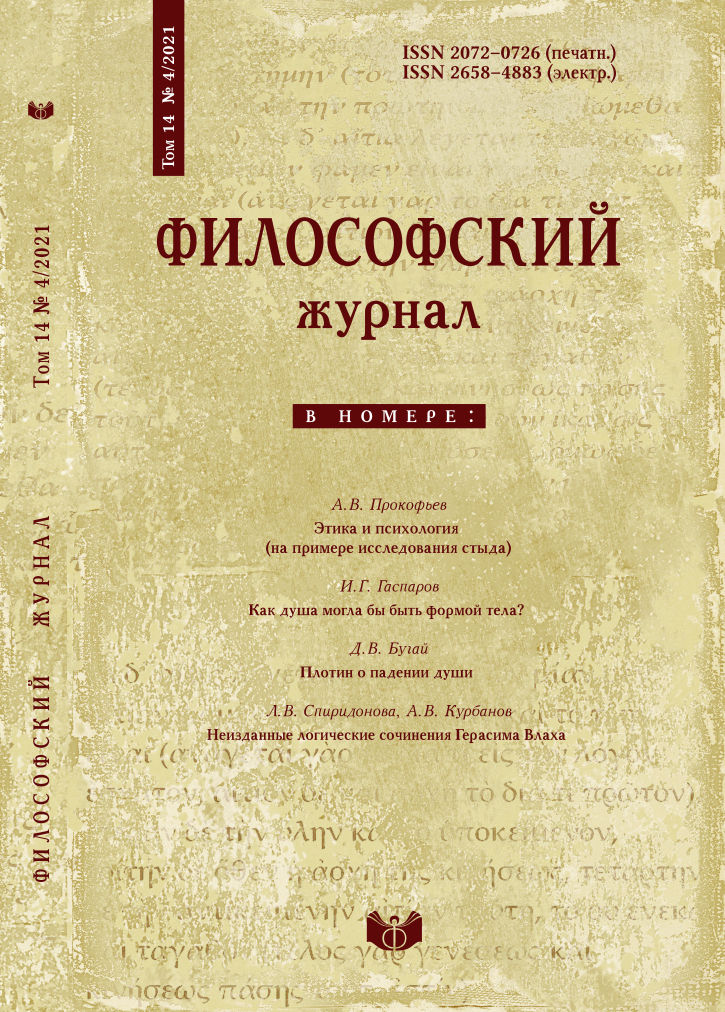How soul could be the form of body?
An Aristotelian-Scholastic approach to the question of the metaphysical nature of the human person
DOI:
https://doi.org/10.21146/2072-0726-2021-14-4-65-81Keywords:
analytic metaphysics, personal identity, indeterminate identity, individual responsibility, Aristotle, Parfit, van InwagenAbstract
The article is devoted to the ontological aspect of the problem of personal identity. In contemporary analytical metaphysics this problem is traditionally stated as the question: What am I? The standard alternatives for solving this question (the Neolockean Psychological View, Parfit’s theory, Cartesian dualism and animalism) are considered and it is shown that all of them, with the exception of Cartesian dualism, face a common fundamental difficulty in accounting for the determinacy of our identity. We thus find ourselves confronted by an unattractive dilemma: either abandon the idea of a determinate identity of the human person or accept Cartesian dualism. It is further shown that the contemporary debate overlooks (without sufficient reasons) the Aristotelian-Scholastic approach to the understanding of the human person as a unity of soul and body. It is demonstrated that this approach has good potential for solving the problem of the indeterminacy of the identity of the human person.






